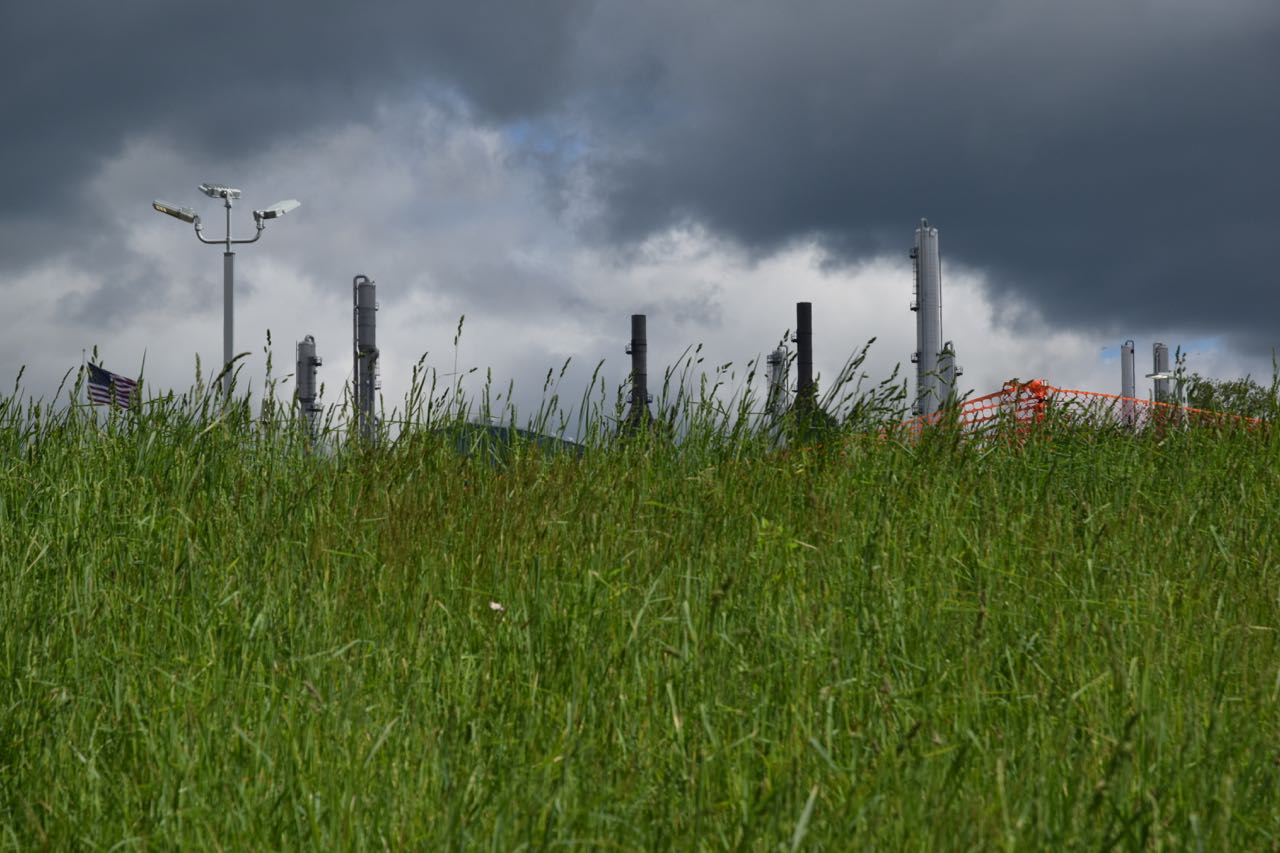Scottish ministers have come under fire after extending a licence for the Grangemouth petrochemical giant, Ineos, to frack for shale gas in the central belt.
The Scottish Government has decided to renew an onshore petroleum exploration and development licence (PEDL) permitting fracking and other underground gas extraction technologies for another year.
Known as PEDL 162, the licence covers 400 square kilometres to the south and west of Falkirk, and is 80 per cent owned by Ineos. It expired on 30 June 2019, and has now been extended for a further twelve months.
Campaigners have criticised the move as “very disappointing” saying that PEDL 162 should have been revoked. The government stressed that its “preferred policy position” was not to support fracking and other unconventional oil and gas extraction in Scotland.
This is the second time PEDL 162 has been extended. The Ferret reported in July 2018 that the Scottish Government had run into criticism after renewing the 10-year-old licence for a year.
Scottish Government extends Ineos fracking licence for a year
PEDL 162 was originally granted by the Westminster government to a firm called Reach Coal Seam Gas in 2008. Ineos bought four-fifths of the licence in 2014, and responsibility for licensing was devolved to Holyrood in February 2018.
Another adjacent fracking licence, PEDL 133, covers an area to the north of Falkirk around the Firth of Forth. It is now also owned by Ineos and has not expired, though it is unclear how long it is due to last.
Scottish ministers were taken to court by Ineos in 2018 for introducing an “effective ban” on fracking. The court threw out a multi-million damages claim from the company, but concluded that the Scottish Government had not banned fracking.
News of the government’s decision came in a letter to politicians and campaign groups late on 28 June. “Following consideration of a request submitted by the licensees, I have decided, for the second year, to extend the initial term of the licence for a further 12 months,” wrote energy minister, Paul Wheelhouse.
“It would have been a dereliction of our responsibility as a competent licensing authority not to consider the request for an extension, taking into account all the relevant factors.”
A second round of extended consultations on the environmental and business impact of the government’s opposition to fracking ended on 25 June 2019. The extension to PEDL 162 would give time for the policy making process to conclude and for licensees to consider their position, Wheelhouse argued.
He insisted that the government was moving “at pace” towards finalising its policy. “I appreciate that this may come as a disappointment to some,” he said.
“But I assure you that, similar to the effect of the extension last summer, this does not change the Scottish Government’s preferred policy position of not supporting the development of unconventional oil and gas in Scotland.”
Ministers would defer any fracking applications “until the policymaking process on our preferred position is completed,” Wheelhouse added.
“The practical effect of the current moratorium, and the policy-making process which is underway to finalise our position, is that no fracking or other unconventional oil and gas activity can take place in Scotland at this time.”
Friends of the Earth Scotland argued that the PEDL 162 should have been revoked. “It is very disappointing that the Scottish Government has opted to extend this license again, when people locally and nationally have said no to fracking so clearly,” said the environmental group’s director, Dr Richard Dixon.
“Extending this license adds to the confusion about whether fracking is to be banned or not and prolongs the uncertainty for the communities at risk. We urge the Scottish Government to move forward with its decision making process, legislate to ban fracking and draw a line under this issue for good.”
The Scottish Greens were similarly disappointed at the government failure to deliver a “watertight” ban. “Despite the fact Ineos lost their legal challenge against the Scottish Government’s moratorium, ministers feel obliged to renew their license,” said Green MSP, Mark Ruskell.
“It has been three months since Nicola Sturgeon declared a climate emergency, yet the risk of fracking remains on the table. It’s time for the Scottish Government to commit to some meaningful action on the climate emergency.”
Donald Campbell, chair of the Broad Alliance of community groups opposing fracking, said: “It beggars belief that the Scottish Government would consider extending this licence for unconventional oil and gas.
“The First Minister, Cabinet secretaries, ministers and MSPs have spoken most eloquently, stating that fracking will not happen in Scotland. Communities across the land rely on our elected representatives to stay true to their word.”
The campaign group, Frackwatch, pointed out that 60,000 people had objected to fracking in a public consultation. “If the Scottish Government means to ensure no fracking, why does it go on extending the existing licences?,” asked the group’s Penny Cole.
“They have the power to end them – why don’t they exercise it? We thought we won when 60,000 people said no to fracking – but actually the threat remains. It means that communities have to stay on the alert.”
Ineos did not reply to a request to comment.














